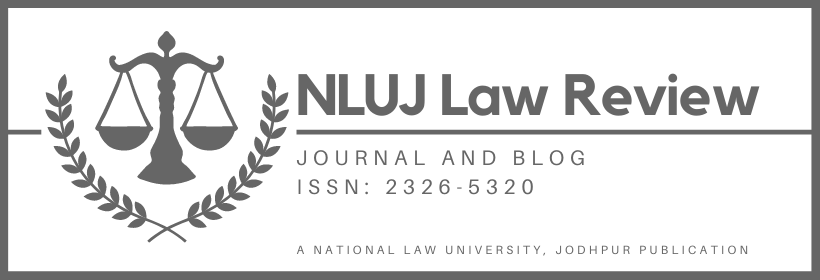The DNA Technology (Use and Application) Regulation Bill, 2019 (“Bill”/“DNA Bill”) was introduced in the Lok Sabha on July 8, 2019. The Bill seeks to formulate a DNA Regulatory Board with a mandate for establishment of DNA Data Banks and Accreditation of DNA Profiling Laboratories. Five categories have been identified under which data indices are to be maintained which include Crime Scene Index, Suspects or Undertrials Index, Offenders Index, Missing Persons Index and Unknown Deceased Persons Index. The Bill has raised concerns on multiple levels, the most serious of the lot being DNA profiling in criminal offences and its violation of the fundamental right to privacy.
Consequently, one of the heavily debated provisions of the Bill relates to consent of accused persons for their DNA samples/bodily substances for the purposes of profiling. Clause 21 of Bill states that for offences punishable with imprisonment of more than seven years or death, the consent of accused is not required to be taken by the investigating agencies. In all other cases, a written consent must be obtained from the person whose sample is to be collected. In the absence of this voluntary consent, a magisterial order could be obtained [Clause 21(2)]. This provision is a clear violation of Right to Privacy as recognised in K.S. Puttaswamy v. Union of India (“Puttaswamy”).
Possible Misuse of a DNA Database
At the onset of the debate, one could argue that the immediate result of DNA profiling would be beneficial to the State on grounds of giving the investigative agencies potential leads, and that the same outweighs the privacy considerations of the citizens. However, such an argument fails to consider the fact that the violation of privacy lies not only in the immediate collection of bodily samples for DNA profiling but also in the possibility of its future manipulation by state agencies.
Misuse of such information could be in the form of planting of evidence against repeated offenders, data sharing with interested private parties such as pharmaceutical and insurance companies, unwanted familial searches, etc. Members of a familial group can become highly susceptible to scrutiny because DNA profiling could lead investigative agencies to arrest people based on their genetic makeup and not on any reasonable grounds of suspicion. While this may make the job of investigative agencies easier, it introduces a fair degree of arbitrariness in the application of law. Although DNA profiling is unique but strong familial similarities can compromise the privacy of the family members of those people who are on the national database.
Absence of a Data Protection Law
The Planning Commission of India had constituted a 12 member Group of Experts which gave five features of Right to Privacy. One of the five was the recognition of right to bodily autonomy and personal data protection. Subsequently, the Draft Personal Data Protection Bill was introduced in the parliament with an aim to regulate the use of a personal data of citizens by the government and private companies. It included consent-based usage of sensitive information like biometrics, financial information and even religious beliefs. The bill seemed like a step towards a more restricted and consensual use of personal information by government machineries.
But what exacerbates the situation against DNA Technology bill is that even the Draft Personal Data Protection Bill, 2019(“PDP Bill”) is not modelled to protect the citizens against the grave privacy violations which the DNA technology bill poses. Section 43 of the PDP Bill creates an exception for the investigation and prosecution of offences, and exempts the observance of strict standards for the same. Therefore, any violation of the privacy of accused persons and their family members under the DNA Technology bill could possibly be justified under such an exception.
While a full-fledged Act on Privacy may seem to be a far-fetched dream, the landmark Puttaswamy judgement can be used as a parameter to check DNA Technology Bill’s legality. With respect to the same, we argue that the DNA Bill would fail the three-prong test of legality-necessity-proportionality as laid down in the Puttaswamy judgement.
Violative of Article 20(3)
As far as legality is concerned, we argue that the Bill in its current form fails the test of legality on the grounds of being violative of Article 20(3) of the Constitution of India (“Constitution”).
It is a settled position in law that collection of fingerprint evidence does not result in a person being a “witness against himself” because such information qualifies as a physical fact, similar to a handwriting sample. Physical facts cannot be considered to be in the knowledge of the accused person and are therefore not violative of Article 20(3) of the Constitution. Consequently, it is easy to argue that DNA, by virtue of being a biological and a physical fact (as a fingerprint) would not be a violation of Article 20(3) of the Constitution.
However, such an argument ignores the fundamental differences in a fingerprint and DNA profiling. It must be noted that DNA profiling is substantially different from fingerprint evidence for two main reasons. Firstly, DNA profiling, (unlike fingerprinting) can be used for tracking behavioural, temperamental, habitual traits of people. This information is more than a mere physical fact and can be categorised as ‘knowledge possessed by the accused’. By virtue of that, tracking such information and arresting people based on such information would amount to a violation of right against self-incrimination under Article 20(3). Secondly, fingerprinting, owing to its one-time usage/application, cannot be used by the investigating authorities for harassing repeated offenders in the future, whereas DNA profiling, stored in a database and readily available to the state, can be used for the same.
Therefore, by virtue of its ability of recreating a number of psychological and behavioural traits about people, DNA is much more than a physical fact and using that as a basis for trying offences would be nothing short of self-incrimination, thereby violating the protection offered by Article 20(3).
Not the ‘least restrictive’ method of identification
Coming to the requirement of necessity, as clarified in the Aadhaar judgement, the state will have to justify the Bill is the least restrictive measure of achieving its goal. The goal as stated in the Bill is, “…establishing the identity of certain categories of persons including the victims, offenders, suspects…”. With a legislation as deeply intrusive as this, it becomes imperative to think about the kind of goals the state is trying to achieve in the first place. What would this establishment of identities possibly achieve? Besides a serious threat to the safety of people on the list, an investigative machinery relying heavily on this database to solve crimes would also trump the concept of presumption of innocence, protected under right to fair trial.
Even if the the state is able to justify a legitimate objective behind the Bill, its provisions are likely to fail the least restrictive measure test as there are equally effective alternatives/mechanisms to it. For example, the alternative methods could involve an erasure of the DNA samples of all suspects and their family members once the trial is over, determining a time limit for recorded offences or restricting non-consensual DNA collection to very specific instances. Such provisions have proven fruitful in countries like the US and UK. Moreover, there is evidence to suggest that DNA profiling may not even be the most accurate way of identifying individuals due to eventualities like blood transfusion, bone marrow transplants and other instances of presence of multiple genomes in the human body. In that case, collection of DNA samples will not even be the most effective method of identification, let alone the least restrictive one.
Fundamental Right to Privacy v. Larger Public Interest
On the issue of proportionality, the state would try to justify the Bill on grounds of a larger public interest of speedy justice delivery. An argument of balancing of state interest with the rights of citizens could be made on grounds of judgements like Bhabani Prasad Jena v. Convenor Secretary which explicitly called for an exercise of balancing of interest by the court in any case where an accused refused to undergo medical examination. However, even for claiming ‘compelling state interest’ as understood in Anuj Garg v. Hotel Association of India under the broader ‘strict scrutiny test’, the state would have to demonstrate that it has adopted a method that infringes the fundamental rights in the narrowest possible manner, so that a delicate balance is maintained between the fundamental rights of the individual and the larger interest of the society.
Therefore, it will be tough for DNA profiling, which violates the fundamental right to privacy and the inherent rights of the accused, to meet the larger public interest exception. Moreover, recent trends suggest that the question in courts is not simply a matter of personal privacy versus public interest, rather the modern perception of how “public interest in respecting personal privacy” is increasingly gaining importance. Therefore, any balancing of interests that may be done by the court in deciding the validity of this law must be done keeping in mind the above parameters.
Conclusion
The Bill currently stands without any procedural safeguards to prevent the leakage or manipulation of DNA samples and makes no distinction between convicted or undertrial prisoners; accused or suspects. Not only does this Bill pose a threat to the fundamental rights of accused, undertrials, suspects but also has the possibility of substantially affecting the lives of their family members. As Justice Chandrachud said, “Constitutional guarantees cannot be subject to the vicissitudes of technology”. In light of this, we must decide how much faith we want to place on the reliability of DNA samples especially when we live in an age where the evidentiary value of DNA samples remains debatable. In conclusion, the DNA Technology Regulation Bill, 2019 clearly ignores the security and privacy considerations of citizens, fails the constitutional tests as evolved in Puttaswamy and therefore, must not be passed without careful considerations of its future implications.
This Article has been authored by Ashima Sharma and Nidhi Pratap Singh. They are third year students at National Law University, Delhi.



